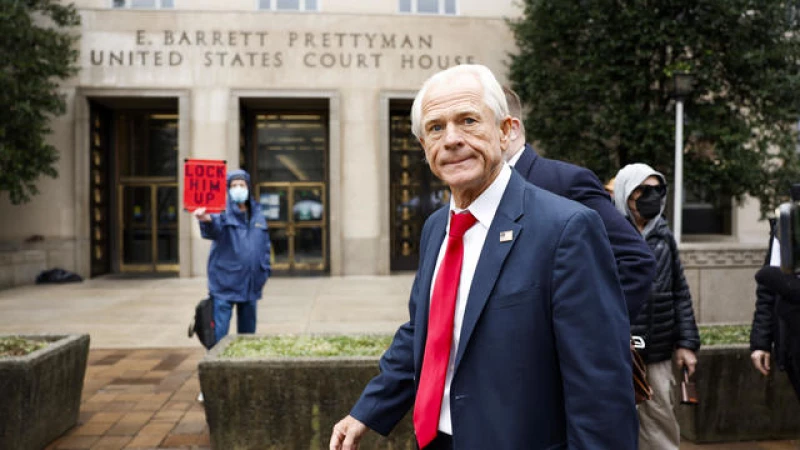Washington — Chief Justice John Roberts on Monday denied a request from former Trump White House trade adviser Peter Navarro to delay his prison sentence while he appeals his conviction for contempt of Congress. Navarro is now set to begin serving a four-month sentence in Florida starting tomorrow.
Navarro was found guilty of contempt after he refused to cooperate with a subpoena from the House select committee investigating the January 6, 2021, Capitol attack. The committee was seeking information related to Navarro's actions following the 2020 election and his involvement in efforts to delay the certification of Electoral College votes.
Back in January, Navarro was sentenced to four months in prison. He is appealing both his conviction and the sentencing decision while the legal process unfolds. Navarro has maintained that he believed he was protected by executive privilege when he defied the committee's requests, but the presiding judge determined that executive privilege was not actually invoked in this case.
Navarro has been instructed to report to a federal prison in Miami by tomorrow.
A three-judge panel on the D.C. Circuit Court of Appeals already rejected his bid to delay the sentence, writing he was unlikely to secure a new trial or reverse his conviction.
In urging the Supreme Court to grant him emergency relief and put a hold on his surrender, Navarro's lawyers argued that he is neither a flight risk nor a threat to public safety, and therefore should be allowed to remain free while he pursues his appeal.
"Dr. Navarro is the only former senior presidential advisor to be prosecuted for contempt of Congress following an assertion of executive privilege by the president that advisor served," his attorneys wrote in their request to the court.
They told the justices that Navarro's prosecution for contempt of Congress violated the separation of powers doctrine, so his conviction must be reversed and the indictment against him dismissed.
His legal team also argued that the questions Navarro plans to raise on appeal, which involve the assertion of executive privilege, are ones that have not been answered before, and therefore warrant his release for now.
"Dr. Navarro's intentional refusal to comply with the congressional subpoena in question is not in dispute. However, he argues that any prosecution would violate the separation of powers doctrine," they stated. "Prior to Dr. Navarro's case, the Department of Justice had never pursued charges against a senior presidential advisor for contempt of Congress after claiming executive privilege."
The Justice Department objected to Navarro's request for release, asserting that he did not meet the necessary criteria for such relief.
In his ruling, Roberts stated that he found "no reason to challenge the conclusion that Navarro waived these arguments during the release proceedings, separate from his ongoing appeal on the case's merits." Acting alone, Roberts, the justice responsible for emergency relief requests from the District of Columbia Circuit, made the decision.
The Biden administration argued that many of the documents sought by the Jan. 6 select committee were personal communications not covered by executive privilege, and Navarro did not dispute the district court's determination that Trump did not actually invoke the privilege.
"If executive privilege was not formally claimed, it cannot serve as a defense in this prosecution," stated Solicitor General Elizabeth Prelogar, who represents the federal government before the Supreme Court.
Prelogar pointed out that presidents frequently opt not to assert executive privilege when responding to congressional subpoenas, emphasizing that the president's authority in this process would be severely undermined if a subordinate — such as Navarro in this instance — could override such a decision.
She wrote that Navarro's assertion of being 'duty-bound' to claim executive privilege, despite former President Trump not asserting it, is completely reversed.







